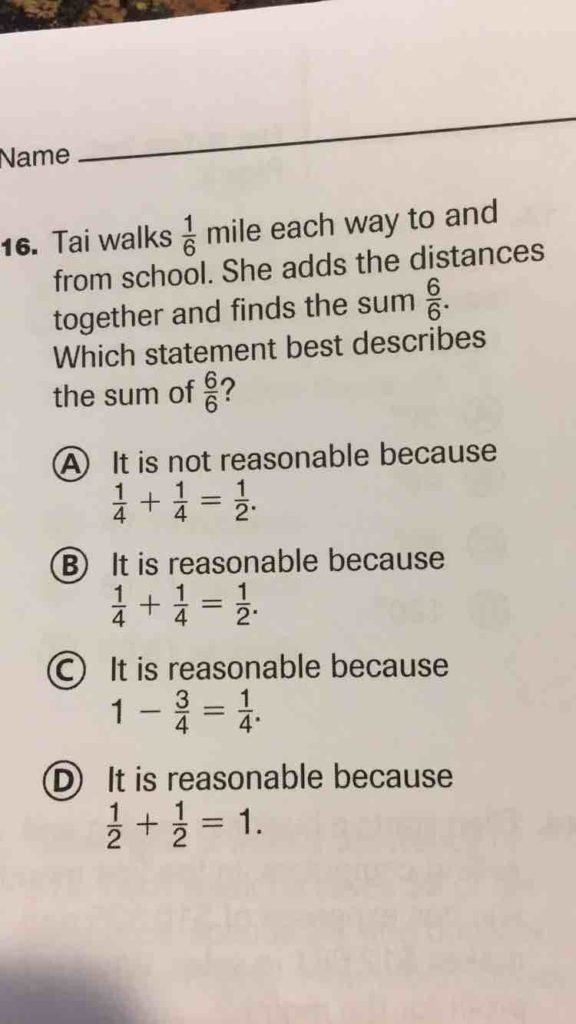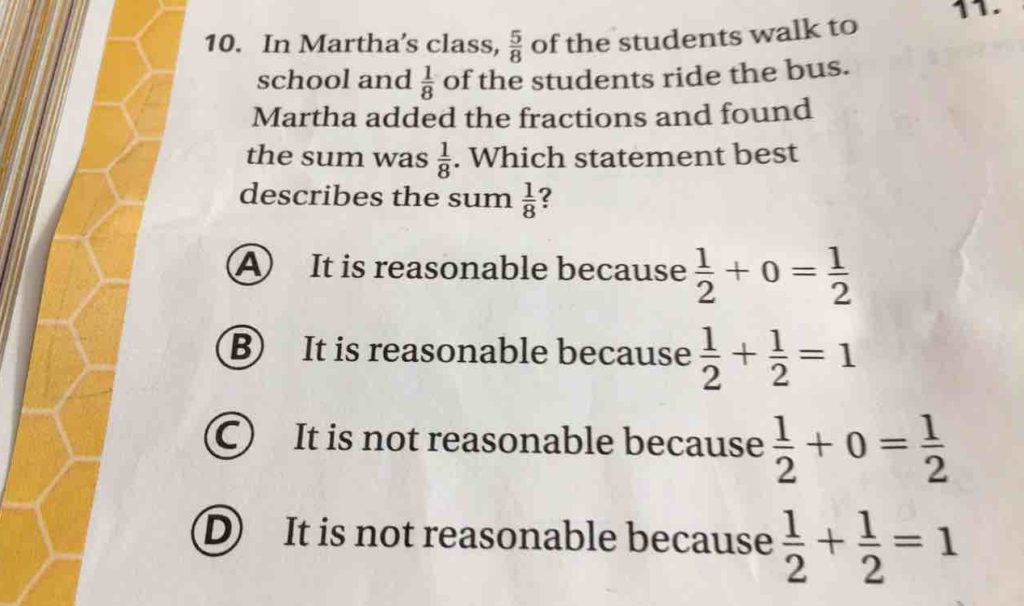In a nutshell: Check out the following story problems relating to fraction estimation to ensure you are prepared to help with similar problems
The following story problems explore a Common Core approach to estimating with fractions. Because Yup’s subject range aligns with the Common Core curriculum, it is important that you are prepared to help students with problems like this going forward.
While they may seem counterintuitive at first glance, these problems are simply asking the student to take less common fractions (like 5/8) and round them to simple fractions or whole numbers (like 1/2) that are easier to add or subtract. They can then estimate the sums or differences to determine if a given answer is reasonable. Note that we are not finding exact values here, but simply estimating.
For example, in #10, we can round 5/8 to 1/2 and 1/8 to 0, to get an estimated sum of 1/2 + 0 = 1/2 . This tells us that the student’s sum, 1/8, would not be a reasonable answer to this problem (see option C).
Problem #16 follows a similar approach. How might you conduct a session if you were faced with #16?
 Thanks! We look forward to hearing your thoughts.
Thanks! We look forward to hearing your thoughts.
— Team Yup

 What are some aspects of this session that don’t align with Yup’s ideologies?
What are some aspects of this session that don’t align with Yup’s ideologies?